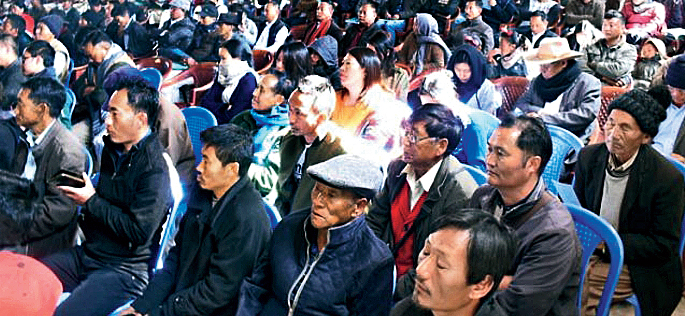A hundred years ago, Kuhoi Zhimomi Sema Naga (Sukhai) assisted by Hekikhe Awomi (Surumi) led 2,000 Nagas to assist the Allies of World War I.
Marking the day in history for the Sumi (Sema) Naga tribe, the World War I Sumi Naga Labor Corps Association, under the aegis of Sumi Hoho, the apex body of Sumi Nagas, celebrated its centenary at Zunheboto town hall on Saturday.
The media affairs of Sumi Hoho, in a press release on Sunday, said designated as the 21st Naga Labor Corps, Kuhoi Zhimomi Sema Naga (Sukhai), Hekikhe Awomi (Surumi) and 2,000 Nagas formed an expeditionary force to assist the Allies of WW-I (1914–1918).
Of the 2,000 Nagas, 1,000 were Sema (Sumi) Nagas while other 1,000 were from Lotha tribe (400), Ao (200), Rengma (200), Chang and other trans-frontier tribes (200), the release said.
The Sumi community celebrated the centenary to pay homage to their forefathers, who courageously embarked on a journey to assist the Allied forces and in memories of those who never returned.
“This chapter in Naga history should always be remembered,” the release added.
Sumi Hoho president Hekhushe Shikhu spoke of how the centenary celebration was organised taking the collective thoughts of the Sumi Nagas and the descendants of the Sumi Labor Corps.
The programme was attended by more than 2,000 invitees and descendants of the corps.
A number of resolutions were adopted during the celebrations. One said the Sumi Hoho recognises the legendary Sumi Naga Labour Corps with pride which fearlessly took part in the WW-I and honour their services in a war that changed global history. “We honour and acknowledge the role they played in awakening the consciousness of Naga identity,” it said.
According to another resolution, the concept of Naga political consciousness “certainly evolved from the experience of the Labor Corps’ exposure during the war which in turn inspired the Naga elders of that era to an agreed concept of the Naga nationalism”.











